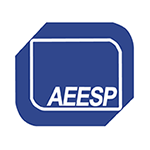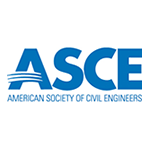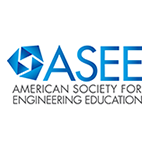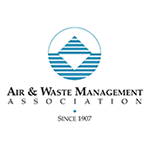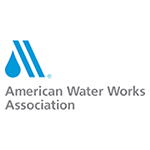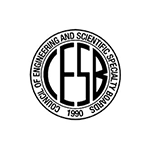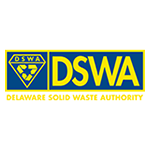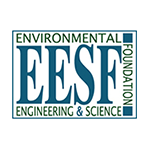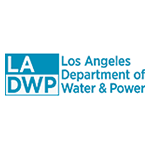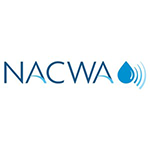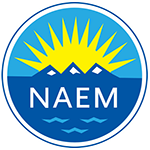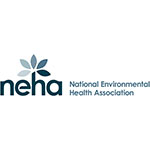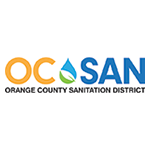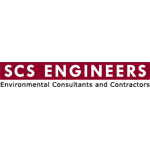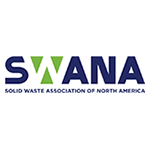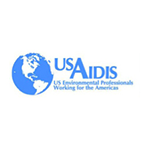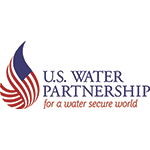- Home
- Contact Us
- News & Events
- Awards
- AAEES Awards Criteria
- 40 Under 40 Recognition Program
- Edward J.Cleary Award
- Excellence in Environmental Engineering and Science Education
- Gordon Maskew Fair Award
- Honorary Member
- International Honorary Member
- Ralph and Joe Bales Graber Science Award
- Stanley E. Kappe Award
- Environmental Communications Awards Competition
- Excellence in Environmental Engineering and Science Competition
- The AAEES Chapter Blue Marble Award
- Resources
- AAEES Microcredentials
- Annual Reports
- AAEES Press Releases
- AAEES Website How To VIdeos
- Environmental Engineer and Scientist
- Environmental Engineering Body of Knowledge
- PFAS Resources
- Specialty Examination Guide
- Students and Young Professionals Resources
- Who's Who in Environmental Engineering & Science®
- Leadership Opportunities
- Membership
- Donate
- Jobs
Specialty DescriptionsEnvironmental Engineering SpecialtiesAir Pollution ControlThe basic knowledge areas encompassed by the Air Pollution Control specialty are:
Environmental SustainabilityEnvironmental Sustainability specialty covers the range of topics about which a specialist in environmental sustainability would be knowledgeable including general sustainability issues. General Environmental EngineeringThe General Environmental Engineering certification encompasses a broad range of knowledge in the many fields of environmental engineering with particular emphasis on public health and environmental impacts. Relevant experience would typically be obtained while in the employ of a local, state, or federal environmental/public health control agency or a department of a private industrial company with similar objectives. This certificate is not intended to imply that the holder is expert in more than one specialty certified by the Academy. Such representations can only be made if the individual holds more than one of the Academy's certificates. The following list characterizes the subjects covered by the written examination for this specialty.
Industrial Hygiene EngineeringIndustrial hygiene science & art is the application of practical, proven, and available practices that provide robust and reliable performance to effectively protect workers, the public and communities, and the environment from unacceptable risks. Industrial hygiene encompasses three (3) domains of knowledge, skills and abilities: (1) ExposureAssessment Principles and Practice, (2) Control Selection, Recommendation/Implementation, and Validation, and (3) Risk Management. Industrial hygienists anticipate and recognize potential health hazards, assess the relationship between exposure and potential adverse health effects, design and recommend/implement an exposure assessmentstrategy, and characterize and prioritize risks and ethically communicate findings. Industrial hygienists assess options using the hierarchy of controls, develop and recommend/implement control strategies, and validate the effectiveness of controls. Industrial hygienists develop and recommend/implement risk management programs and systems, and evaluate/maintain the effectiveness of risk management systems. The industrial hygiene subject matter expert (SME) is examined based on their comprehensive work experience gained at industry, government, consulting, NGO, and/or academia entity, and are thus certified as a Board Certified Environmental Scientist (BCES) or Board Certified Environmental Engineer (BCEE). Radiation Protection EngineeringThe expertise encompassed by the Radiation Protection specialty include three primary areas:
And to lesser extent, the certificant is expected to be knowledgeable about instrumentation, dosimetry, radiation monitoring and applicable regulations and guidelines. Site Remediation (formerly called Hazardous Waste Management and Site Remediation)The Site Remediation (SR) Specialty Certification distinguishes professionals who are recognized by their peers as practicing the highest levels of technical proficiency. The SR Specialty Certification evaluates subject matter experts (SMEs) on their knowledge of site investigation and remediation activities as well as practical knowledge of health and safety requirements and a working knowledge of the technical aspects of remediation, waste handling and proper disposal. A SME seeking this certification will have technical and practical experience in site investigation activities.These activities include applying knowledge of subsurface geology, stream, wetland, and sediment systems, fate andtransport mechanisms, soil, groundwater and sediment sampling techniques, analytical analysis techniques, and equipment and techniques to identify and quantify site impacts. In addition, the SME will also be knowledgeable of site remediation techniques and technologies and able to evaluate appropriate technologies for various site conditions and constituents of concern. As indicated above, the SR specialty certification addresses site remediation from investigation to remediation. A successful SME candidate must demonstrate a high level of proficiency in the science (primarily focused on site investigation) and engineering (primarily focused on the site remediation activities) of this practice area. The Site Remediation Committee (SR-C) completed anextensive evaluation of the SR practice and determined there is no clear distinction separating the work performed by scientists and/or engineers in this field; thus, an examinee for the SR specialty certification with a science and/or engineering background is evaluated by the same examination materials. The SR specialty focuses on technical knowledge of site remediation and, not onfederal, state, or local regulatory requirements (i.e., RCRA, Superfund, etc., and/or program administrative requirements) as these vary from jurisdiction to jurisdiction. Thus, the SR Specialty Certification is also suitable for international SMEs Solid Waste ManagementThe solid waste management profession includes studies, engineering, permitting, design, operation, and monitoring of collection systems, transfer stations, processing and conversion facilities, and landfills that manage recyclables and, municipal solid waste. The purpose of the Solid Waste Management (SW) Committee is to develop oral and written exams that assess the knowledge and experience of potential candidates for Board Certification through the AAEES. The SW-Committee attempts to balance the questions on the exams to explore the breadth of a candidate’s knowledge of the solid waste industry, understanding that the industry is broad. Water Supply/Wastewater EngineeringThe Water-Supply and Wastewater Engineering principally encompasses the subject matter expertise or knowledge areas of hydraulics, water- chemistry, engineering design, project-delivery, municipal drinking water and wastewater treatment, industrial wastewater treatment, energy use efficiency, water-reuse, desalination, and water system or plant operation(s) including monitoring. The municipal drinking water supply subject area includes source water protection, source water quality, water treatment including solids’ handling, and product water quality and distribution. The municipal wastewater subject area includes: sewerage or collection systems; influent characteristics; treatment and final effluent quality; nutrient recovery; and solids’ handling. The energy expertise area includes: pumping systems, energy-use optimization of process or unit operation(s), and application of renewables. And, otherassociated subject matter expertise relates to planning and economics, regulatory, safety, security, resilience, project-governance, and sustainability. The subject matter experts (SMEs) are examined based on their comprehensive work experience gained at industry, government, and/or academia entity, and thus certified as a Board Certified Environmental Engineer (BCEE-WW).
Environmental Science SpecialtiesAir ResourcesAir Resources specialty focuses on air pollution in both the ambient atmosphere and indoors. In addition to environmental and health effects of air pollutants, the exam covers their sources, transport, and behavior/ transformations, as well as basic physical and chemical characteristics of the atmosphere, federal legislation on air pollution, air quality analytical methods, and control technologies. Environmental BiologyEnvironmental Biology specialty focuses on important principles of the biology and ecology of ecosystems and their stressors, including toxic substances; ecosystem remediation and restoration; population dynamics; organismal biology, including endangered species; and natural resources. Emphasis is on aquatic systems, but not to the exclusion of terrestrial issues. The exam also covers basic biological issues related to important federal regulations, sustainability, and “green” principles in restoration, urban habitats and remediation. Environmental ChemistryEnvironmental Chemistry (EC) specialty focuses on the chemical behavior of major environmental reservoirs, including soils, the atmosphere, and surface water and groundwater, with particular emphasis on the behavior of pollutant substances in natural and engineered systems. The principles of physical, inorganic, and organic chemistry needed to understand chemical processes and analytical methods used to measure chemicals and chemical processes in these systems also are covered, along with relevant aspects of environmental legislation. This committee is responsible for maintaining the examination and to evaluate potential candidates for the AAEES certification as Board Certified Environmental Scientist (BCES) in the specialty of EC. Members of this committee also provide the AAEES with a pool of individuals with expertise in this subject matter. Environmental MicrobiologyEnvironmental Microbiology specialty focuses on the fundamental principles of microbial growth and metabolism and their applications to environmental processes in natural and human-impacted environments, including natural waters, wastewater, and soils. Environmental ToxicologyEnvironmental Toxicology specialty focuses on the principles and methods of the integrated science of environmental toxicology. It covers the two major areas of hazard evaluation–harmful effects of chemical, biological and physical agents on humans, wildlife, and other fauna and flora, and exposure assessment, including sources, transport, behavior and fate of toxic substances in the environment. Relevant laws and regulations related to the control and management of toxic materials also are covered as are risk assessment principles. Groundwater and the Subsurface EnvironmentGroundwater and the Subsurface Environment specialty focuses on the understanding of groundwater under both natural and contaminated conditions. Fundamental principles, such as groundwater occurrence, hydraulics, and geochemistry, are coupled with issues related to contamination, such as sampling, non-aqueous phase liquids, solute transport, and principles of bioremediation. Site Remediation (formerly known as Hazardous Waste Management and Site Remediation)(see above) Solid Waste Management(see above) Surface Water ResourcesWater Resources (WR) Committee focuses on a combined spectrum of surface and subsurface water management and that includes the: (1) adaptation to changes in climate and water, and (2) management of storm, flooding, and/or drought conditions. Priority in the climate adaptive management is the focus on water recycling with treatment alternatives for direct potable and indirect potable reuse (DPR and IPR) of impaired water(s). The committee will also evaluate experiences with recycled water and water desalination processes and operations. Committee’s interests in integrated uses of surface and ground waters include “storage and conveyance” with salient topics related to: (a) project planning, (b) condition assessments, and (c) environmental stewardship. The engineering emphasis is on sustainable-design concepts on all beneficial uses of waters in watersheds, reservoirs, and/or aquifers. The professionals for board-certification are examined on the said topics, including the relevant aspects of water-chemistry, biology and microbiology, fate and transport, sampling and measurement methods ofpollutants in water and wastewater, groundwater occurrence, hydraulics, and geochemistry that are coupled with issues related to contamination (i.e., nitrate and/or salt), such as sampling, non- aqueous phase liquids, solute transport, and principles of bioremediation. The professional(s) with proven experience on surface and subsurface (ground) water resources is certified as BCES or BCEE in the WR-specialty. Sustainability ScienceSustainability Science focuses on the understanding of the science underlying basic concepts of environmental sustainability, including some economic and social aspects of sustainability. |


